Shortly before recording the podcast, Liv Boeree asked subscribers to ask her and Igor questions, so the conversation largely consisted of answers. Igor spoke much more, so we formatted the text as a regular interview (Liv's lines are in bold).
– Welcome to the Win-Win podcast. Today's episode is all about love and relationships. I'm speaking to my dearest significant other, Igor Kurganov.
Igor and I recently celebrated 10 years together, so we decided to try this experimental episode where we interview each other about what makes a healthy relationship. The thing is, a truly good relationship is arguably the most positive-sum, win-win thing you can ever find, where two people create something much larger than the sum of their individual parts.
People want to know what our secret ingredient is. I don't think I can narrow it down to one thing off the top of my head.
– The secret to happiness is having low expectations. No, that's not it. Communication. Definitely communication.
– What is unique about our communication?
We're very, very, very honest with each other. We try to be very direct with each other and are good at it actually. We know that while the other is commenting on mistakes or gives feedback to the other, that it comes from a place of "We Are One Team." We are aware that there's like meta-coordination basically in the feedback-giving.
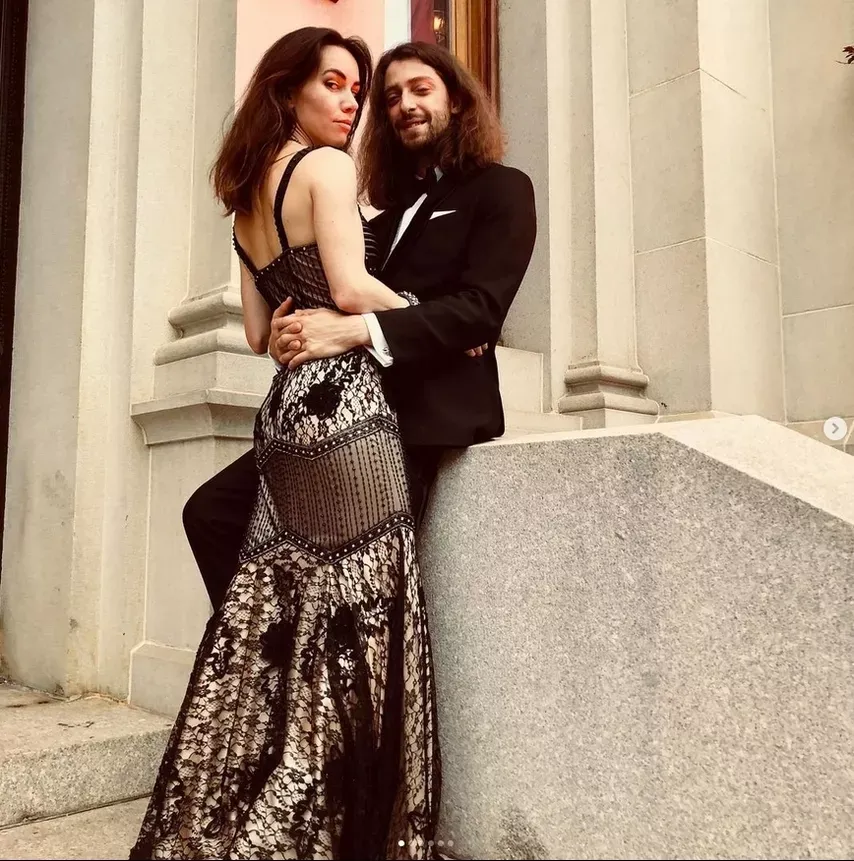
– Define meta-coordination?
– Well, like we've agreed that this would be the better style to have communication and our general way of being with each other, which involves sometimes butting heads on various things very quickly rather than trying to optimize for each individual moment being one of calm, harmony, and pleasantness.
Sounds like it's awful to be us, but actually some friends experience it a little bit like that because we do very quickly tell each other, "I didn't like that," "Stop doing this," "That's annoying," "Why do you do this?" "You have this pattern, you always do that." We actually say the classic things you're meant to avoid, like talking about the concrete thing but making it into a general claim. With us, we do that quite a bit, and actually our reaction most often is, "Oh yeah, I actually may have this general bias."
So we have this theory. Relationships can be, or rather the communication in relationships that we have observed among friends, you would plot on a graph with two axes. On the x-axis, you have how soft versus aggressive the conversation is, the communication is happening. On the y-axis, you have the frequency of how often it occurs, that style of communication occurs within the relationship.
I think a lot of couples spend their time in kind of like a dumbbell. Like, everything is nicey-nice the entire time, very often. Very little time spent in 3, 4, 5, 6, 7, 8, and then because it builds up, it jumps and they fight quite hard, right?
– Really hardcore fights.
– Yeah, we spend our time... it's basically very little nicey-nice.
Pretty much no 9, or like no 9 or definitely no 10. No 10, basically no 9. I don't know, like once a year a 9 or something, and some 8s and 7s.
– I actually can't think of the last time we had like a real fight.
– Our theory goes that, because we get to clear out a lot of stuff in this 2, 3, 4, 5, 6 region, we never fall into the stronger, worse explosion because there is no built-up resentment, build-up kind of desire to now say it all finally, etc. It just... stuff doesn't build up.
– What you're getting at is that we never bite our tongues, or very rarely.
– The reason to bite a tongue is when we're in public or among friends or like at a party or something, and even then we often don't. Exactly, which is why many of our friends feel that it's like a mom and dad fighting.
– New friends are like, "Oh, oh, oh God, you guys, please don't fight!" We're like, "No, no, no, this is all normal."
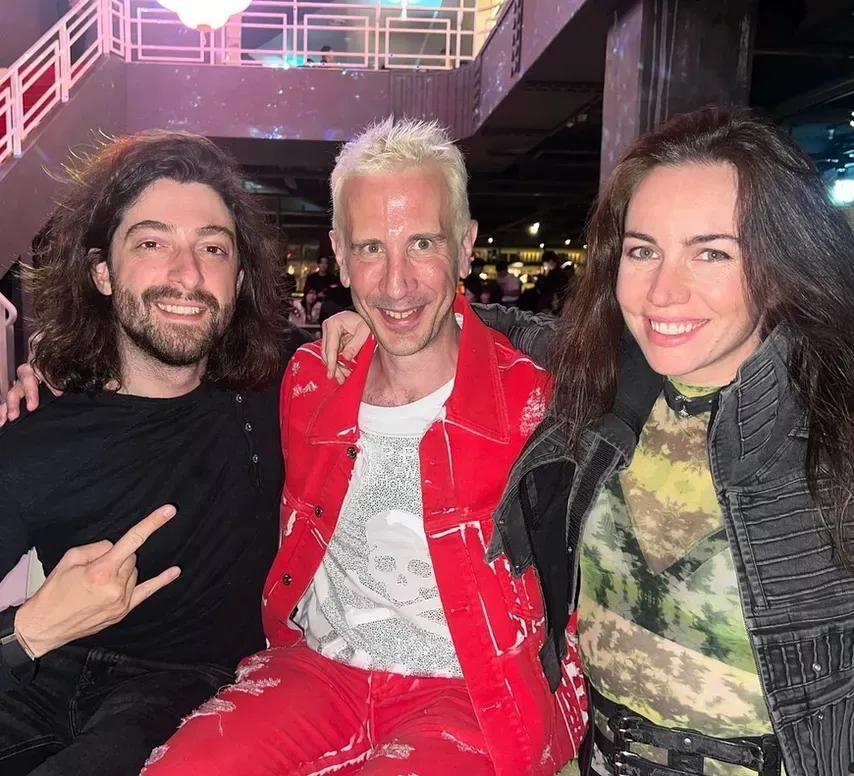
– So then the question is, what is it that makes our communication function? What are the prerequisites that had to be in place so that we can have this direct, quick, honest conversation?
One, we respect each other's opinions a lot. So, then you want to listen to the other, obviously. We know that the intention is to be on the same team.
– For me at least, I feel like this deep sense of security that even if there is a major conflict or an argument about something, it's not ever going to be a "Well, that's it then." I have like zero concern that you would leave and so on. And I think a lot of people don't actually have that luxury in a relationship.
– To bring it to three words, it would be security, then trust, and respect.
I think you could get away with just respect and trust. You actually don't necessarily need security if you have full trust and full respect. Then you're also already very highly enabled to have good communication, but security just helps. It's like a kind of positive undercurrent underneath that allows you to reduce the worry about the bottom falling out at any point. And that's useful. It's like if you can cap the downside, then usually you can take much higher risk.
– Well, that's the other thing. Our love language is shit-talking, and game banter is truly what we both enjoy doing. Like we wake up every morning and our current obsession is Backgammon, and we start the day with a cup of coffee and smack talking each other to death. That's how we get fired up for the day, and it's wonderful. So that slightly harsh or intense, fiery language just flows over into our natural state.
But I never feel like I've bottled anything up ever, and I don't think you do either.
– So, I mean, it will occasionally still happen, right? We're not perfect at this. Like, what do you mean you never... like when you just said you never bottled anything up, what's the extreme bottling up that you were excluding here?
So what did you mean when you just said that? Or were you speaking in superlatives?
– Because I feel like there's not really anything that I can't say to you. It so rarely bottles up. Like, I get that one time, like I had a crush on someone, let's say. I felt like I couldn't immediately express it for like a week or so because it was like the first time I noticed someone else since we've been together basically. And I was like, "Oh, what does this mean? What does this mean?" But then eventually I blurted it out, and you were like, "Okay, yeah, that happens. I mean, we're going to be together for a long, long time. You're going to get crushes on people." And I was like, "Oh, okay." And then basically after that moment, I was like, "Well, there's nothing I can't say to him."
– Yeah, I mean, the idea there simply is that if you are going to be together with each other for 20, 30, 40, 50 years, it would be very odd to literally have the expectation that the most likely outcome of amount of crushes each of you will have is zero. Like, that doesn't... in a functioning, good relationship, not because of issues, in a functioning, good relationship, the expectation shouldn't be zero, right? That doesn't make any sense over a period of 20, 30, 40, 50 years.
It's fine, like, Winston f***s our backpack.
– People... okay, Winston is the tortoise, for those who are wondering, not like a polyamorous lover or something who lives with us.
A Question From Fedor Holz
– Crown Up Guy (Fedor Holz) asks, Is there something that helped your relationship a lot that you weren't expecting or surprised you? What small thing would you say you did in your relationship, maybe regularly, that had the biggest effort or return?
– I think like the thing you previously mentioned is one of them, like the hissing at each other. Yeah, like something so that... to abstract it, would be something that both parties have agreed is a quick and short sign one can show each other that makes the other realize that they're...
– You know, they've gone into the Red Mist.
– The alternative instead of the hissing would be to say, "Hey, you're currently being a bit irrational here" or "You're attacking me every time I say something" or anything like that. But none of these things work because you can still respond to that, right? Somehow, right? Like, "You're attacking me unjustly." It's like, "Well, no, you just did that thing and you totally deserve to be attacked" would be the response.
You can't respond to a hiss very much.
So if you can find an alternative to that, or take the same thing, who cares? I think it's useful to have something that shows kind of the ridiculousness of the moment a little bit. So the hiss was incredibly high value for the easiness of adding it.
If someone has a kind of bad pattern of behavior that they themselves likely would not want to have, finding a way for them to frame that concept around it such that it's really sticky... that, I think, is helpful.
-One of the most impactful books I ever read in terms of relationships and understanding relationships is this book "The Passion Trap," which talks about how over time a power imbalance can develop. And it can be... you know, everyone usually thinks, "Oh, the man has more power than woman." It's often the other way, whereby basically one feels a lot more secure in the relationship than the other. One has more confidence, and it sometimes can switch if, let's say, one loses their job suddenly and so now they're having a confidence crisis. And then they start like feeling bad about themselves, and then they start like needing more from the relationship.
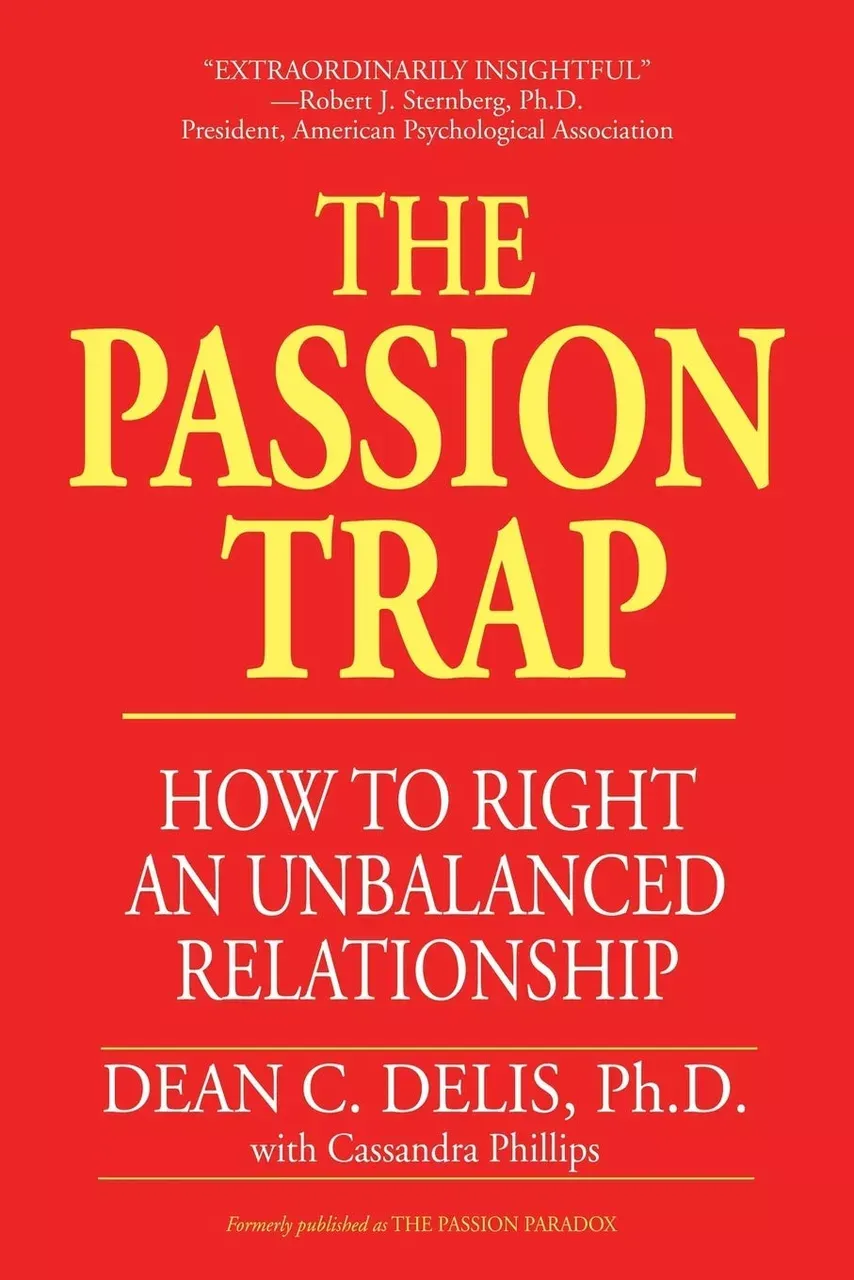
And it can create this separation where the one down, as it were, the one with less power becomes needier and more demanding of the other one, who now finds them slightly less attractive. If that imbalance isn't addressed and realized for what it is, it can very quickly spiral, and that's the most common ingredient of why relationships go wrong.
Yeah, I thought it was a great book as well, and that leads to worsening patterns of behavior. Basically, the neediness becomes needier, the like push away becomes more push away because it reacts to the neediness, etc. And the helpful thing there is basically that the book makes you realize that some things are a problem of the dynamic rather than about the person.
– The individual. Exactly.
Twitter Questions
– Is there anything now, knowing what we know, we would have told each other 10 years ago when we first met?
I don't know if I would want to say "You've met your soulmate" because then that would change...
– No need for that.
– Yeah, I worry about the time causality problem.
– Buy Bitcoin. More.
– Yeah, buy more Bitcoin.
– Classic.
– Yes, fold the turn when against Dan Smith.
– 10 years ago actually would have been too late. I would have already lost Bitcoin on Mt. Gox. Get it out of Mt. Gox would have been a good idea.
– Do soulmates exist?
– I mean, to the degree to which it makes sense to have the concept of a soulmate... like if there is the word soulmate that is meaningful in any way, then yes, I think there are soulmates.
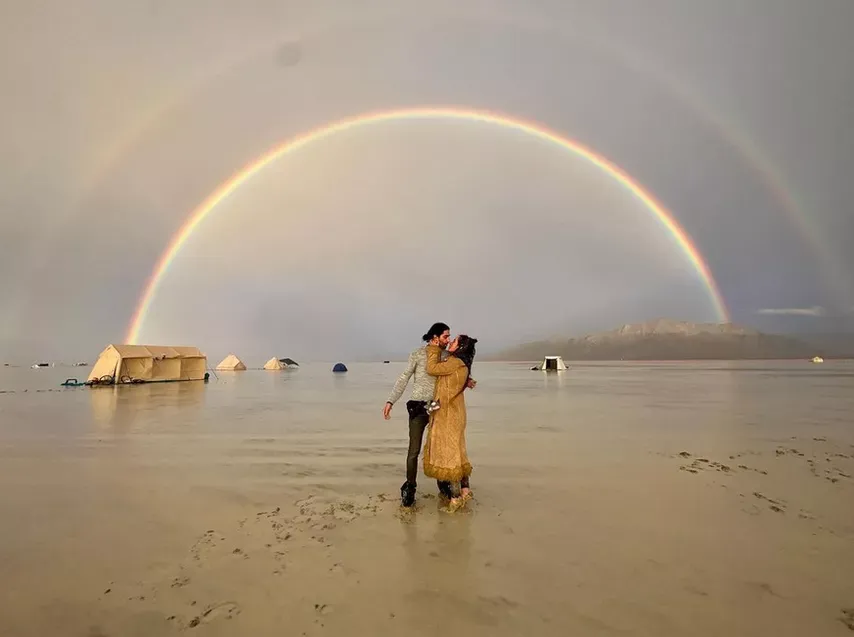
It's like in the same category of like, do you feel like you're exercising free will or do you have free will? It's like, well, I can see you having a justified framework where free will doesn't exist, where soulmates don't exist, etc., at all. But to the degree that the concept is understood when you communicate to someone else about this and it does make sense, then yes, I have free will because it makes sense to assume of the other to have free will to explain certain things that appear that way when I make decisions. And it's a more useful way to describe situations than like talk about determinism.
And similarly with soulmates, it's like, yeah, some people are just so clearly so right for each other that you could describe them as soulmates.
– I think what comes to me when I hear the term soulmate is like this appeal to magic. Like, is there some kind of magical thing or something bigger and beyond what science could ever explain? And I have to say, it does feel that way.
But then the worst question is: Do you think there is a soulmate for everyone?
– So the question is, like, out of the eight billion people alive, does every single person perfectly match with someone else?
– And, precisely one other person? That would be... so that is actually a very detrimental view. I think that would lead to bad outcomes if people believe that, and it doesn't seem likely to me to be true whatsoever.
– They're going to be always searching for perfect, perfect, perfect, perfect...
– How much did money help your relationship? Traveling where and when, doing what you want, etc.? Financial pressure adds major weight to even the perfect couple, says "blah blah 3377".
– You're just making that up. That's actually their name? I mean, yeah, that's a very valid point.
– And that's one of the ways we've been lucky. Through kind of playing poker in our 20s, we had sufficient financial freedom to travel and have a lot of novel experiences where we didn't have to turn over and double-look on every single item that we spent money on. Like, it wasn't an issue to, while traveling, get food in a restaurant, or like order room service in the hotel. Those weren't questions we needed to worry about, and that for sure makes things easier.
– Anything that adds additional pressure to relationships, whether it's a financial thing or someone is having to care for an elderly parent or something like that, that's going to put a strain on a marriage. Or if you have a bunch of children and your time is just so constrained because you're just dealing with changing nappies or whatever it is, you know, all the children's stuff. Pressures in general are just going to make relationships harder.
But the same kind of principles apply. It's like you're going to have, therefore, it's more likely that you're going to have conflicts and so on. So you just really have to have solid foundations of how you dialogue in that, and also the ability to like step outside of these situations and be like, "Okay, well look, we're under additional pressure right now. Finances are tighter," or "I've got my mom living with us now," and so on. Acknowledging being mad at the situation as opposed to each other is really key.
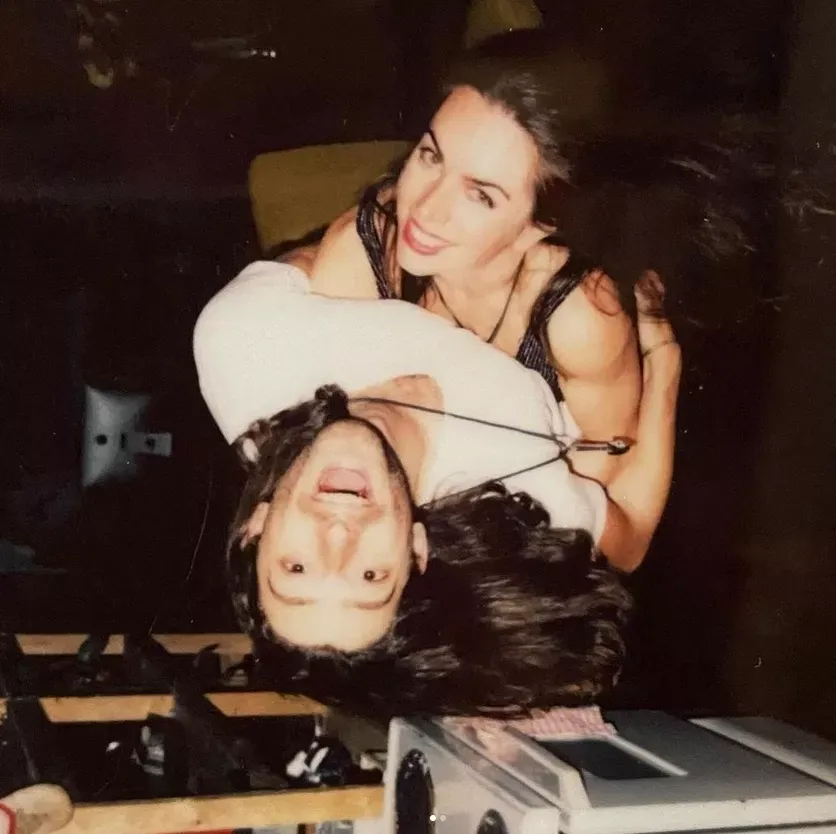
– I think what you said is very relevantly true across the whole domain of potential relationships. That said, specifically advising on what if our financial situation was much worse or even much better, I don't know. I don't know how it would have affected us. We only live through the one that we had.
– We did live through it like... you went on a huge downswing.
– Yeah, I was broke when we got together.
– You were literally broke when we got together.
– But it's a different type of broke, right?
– You had the ability to borrow, which some don't.
-Exactly. Some people that are in business or whatever, they go broke and are like down millions, you know. And it's like, well, you have to be pretty wealthy and free to be able to be down millions because probably it means that your earning potential is so high that you can get it back.
– There's like privileged broke and non-privileged broke.
– Yes, and in this case, we were... it was definitely high privileged broke. Just to make it clearer, in 2013 after the first time that I had like (as a 20 early
20-year-old), "Oh, I have over a million dollars for the first time from poker," that was amazing, but then I lost it within months and was in the minus.
Another user asks: Please talk about spending time together and alone. What is your and Igor's sweet spot on this? Do you have any hobbies or workouts separately?
– So we do spend an extraordinary amount of time together. We're probably in the like 90th percentile, more 95th... Yeah, easily. What do we do separately?
– Yeah, exactly, what do we do separately? We work separately. That's it. We're in different rooms. We even moved in the same office to try out there. Yeah, so we mostly meet friends together, we go bouldering together, we go hiking together, we go on the lake together. We just... Actually, you do that sometimes without me.
– I do more outdoorsy stuff than you.
– You have a higher need for outdoorsy, and I have a higher need for computer.
– You love computer. You would do a lot of computer.
New Ten Year Prediction
– Let's finish on a nice story. I feel like we haven't said any good stories.
– The reason we're recording this is that it was our 10-year anniversary. Yes, arguably in terms of total time spent with each other, given that we spend like 350 out of 365 days a year together, many, many hours per day. It's kind of nearly our 20-year anniversary already, but the number is 10 officially.
So we made a prediction early on in our relationship of how likely it is that we'll still be together in 10 years.
How about we make predictions from today about how likely it is that we're still together in one year and 10 years? Think about it for a moment, and then we will yell out the numbers at the same time. Conditional on the world only having changed over the next 10 years up to 2x as much as it has over the last 10 years.
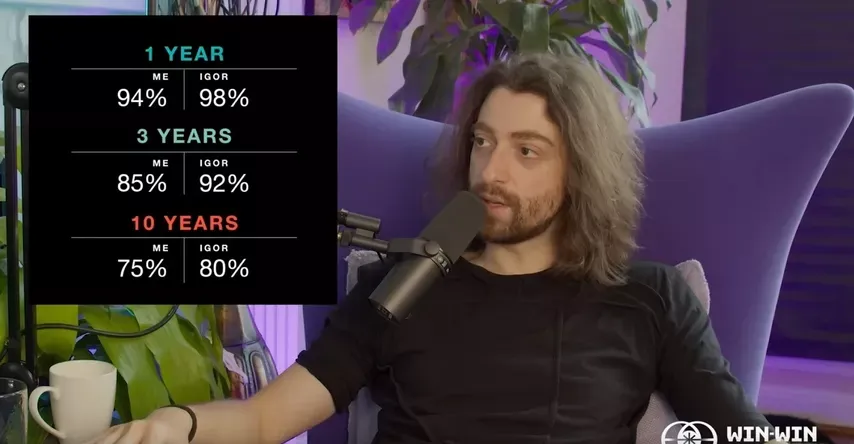
– Conditional on us having corporeal forms such that we can have a relationship together, I think is maybe what you're getting at.
– We're doing one year first. I'm just going to count us down to one, and we're just saying the number at the same time.
So for one year...
– 99%.
– 99%.
– Yeah, I was just debating whether I wanted to say 100 because I actually think it's 99.9.
– Yeah. Then in 10 years...
– 94%.
– 82%.
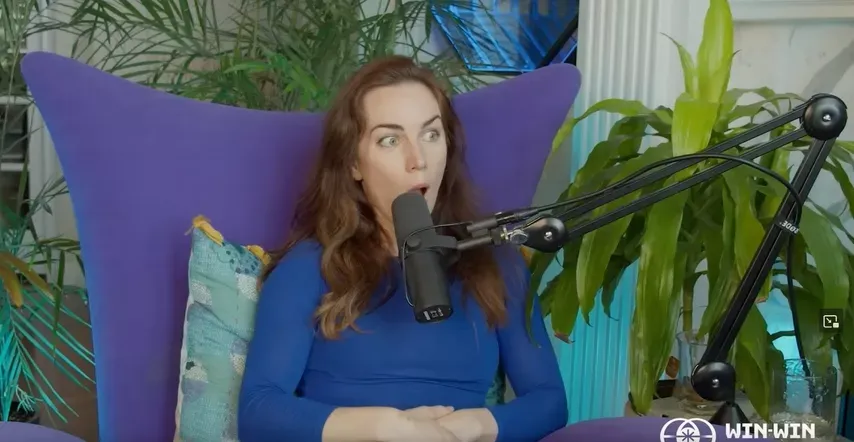
– 82%!?
– I don't know, a lot of things happen in 10 years. 82% is a high number for 10 years.
– Well, so when we did this 10 years ago, I think our 10 year was 75% and 80%, right? So you've... we've gotten through 10 years and you've only upweighted by 4%?
– Yeah, I think going through 10 years is not that strong evidence on whether it was realistically 80 or 70 or 90%, you know.
– I think it's pretty strong evidence.
– No, that's just... we'll have to cut that out. That's bad math by you. Base would say that the evidence is not very strong. An N of 1 turning out 1 rather than 0, right? It happened rather than didn't happen, doesn't give you a lot of information about whether the real likelihood of this was 80% or 90% or 70%. In all of these cases, you would very much expect to observe a single instance to occur rather than not occur. So you didn't get much information actually on the basis of it having occurred.


